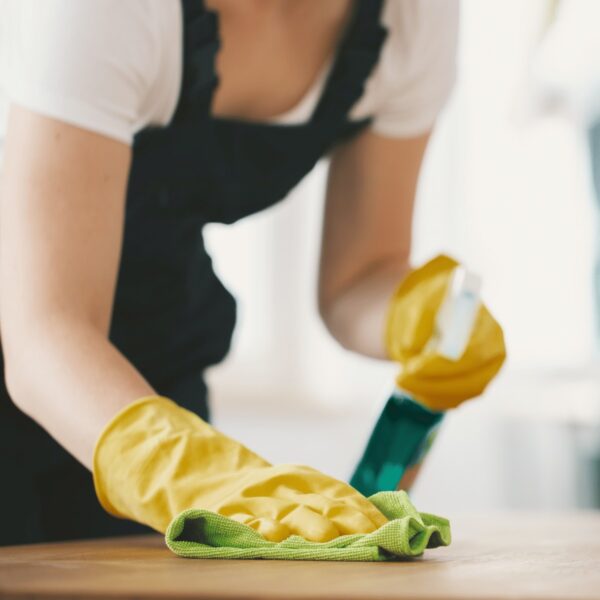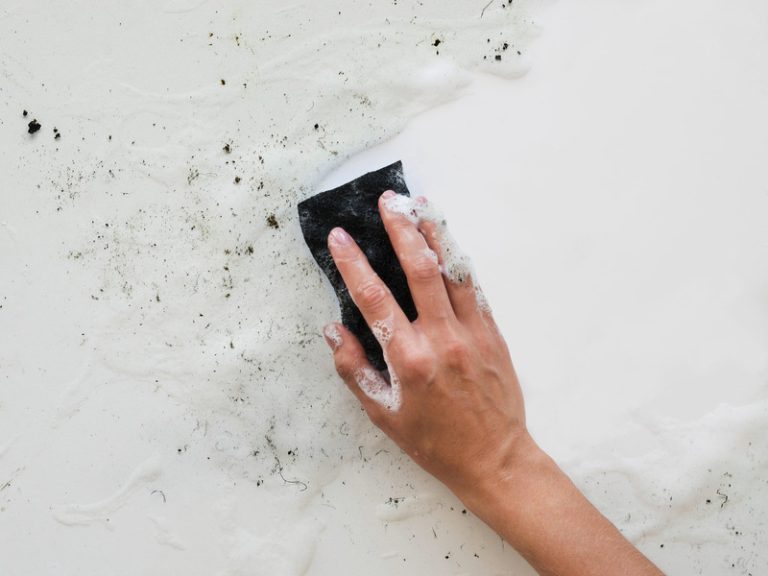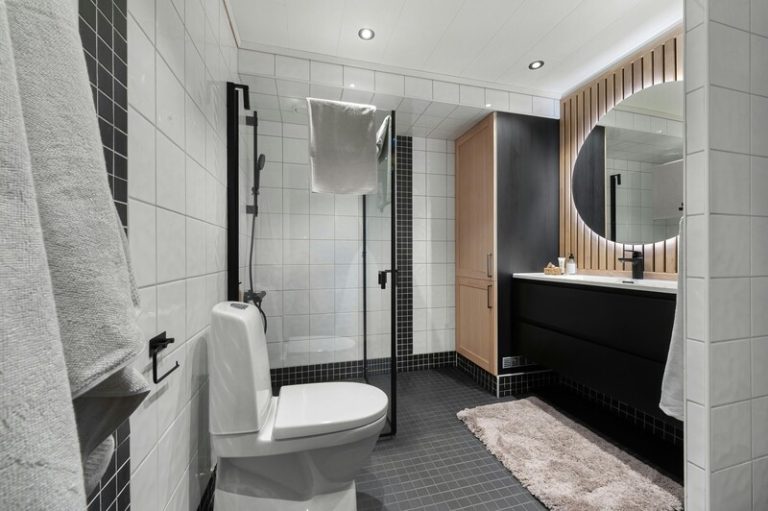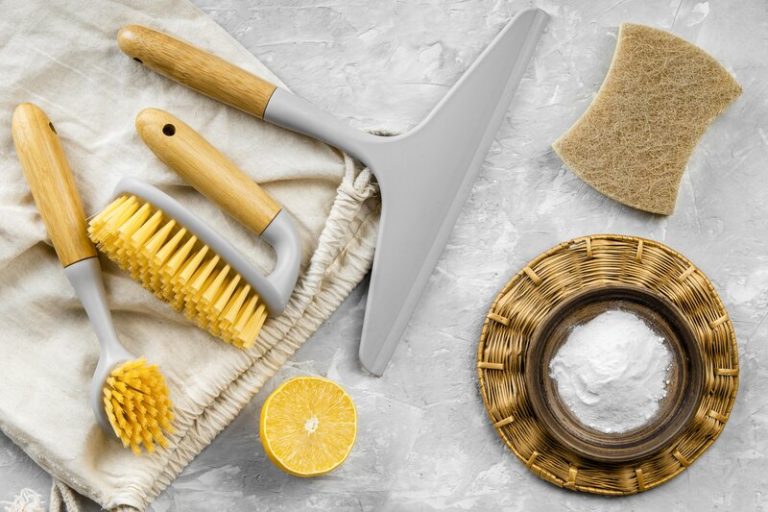Have you ever walked into a room and noticed a musty odour coming from the carpet? Well, it must be very annoying isn’t it. That’s why it’s important for you to know how to get rid of damp carpet smell.
Basically, damp carpet smell can be a common problem, but it doesn’t have to be persistent. Therefore, today we will provide a step-by-step guide on how to get rid of damp carpet smell that you can easily follow.
From using natural ingredients like baking soda and vinegar to professional cleaning services, we have the tips and tricks to keep your carpet fresh and clean.
How to Get Rid of Damp Carpet Smell?
Basically, you can use household ingredients such as vinegar and bicarbonate of soda as well as special cleaning solutions to effectively neutralise the smell and refresh your carpet. Here is more on how to get rid of damp carpet smell:
a. Baking Soda
Bicarbonate of soda is a natural deodoriser that can effectively remove damp carpet smells by absorbing moisture and neutralising odours.
When you sprinkle bicarbonate of soda generously over your carpet, its fine particles work their way deep into the fibres, targeting odours at their source. Allowing it to sit for a few hours gives it ample time to absorb the moisture and odours. The gentle abrasive nature of the bicarbonate of soda also helps to loosen dirt and debris trapped within the carpet fibres. It is a non-toxic and affordable solution, making it a safe and cost-effective method for freshening up your carpets without using harsh chemicals.
b. Vinegar
Vinegar, especially white vinegar, is an effective cleaning solution that can help remove damp carpet smells by breaking down odour-causing compounds.
To create a vinegar and water mix for carpet cleaning, start by combining equal parts of white vinegar and water in a spray bottle.
Shake the bottle well to ensure the solution is properly mixed.
Once mixed, spray the solution generously onto the affected areas of the carpet, making sure to cover the entire surface evenly.
The antibacterial properties of vinegar not only help in neutralising unpleasant smells but also aid in disinfecting the carpet fibres, providing a cleaner and healthier environment.
c. Lemon Juice
Lemon juice is a natural cleaner that not only helps to remove damp carpet smells but also leaves a fresh citrus scent behind.
When using lemon juice as a deodoriser, mix it with water in a spray bottle for easy application onto the carpet. Simply spritz the mixture onto the affected areas and let it sit for a few minutes before blotting it up with a clean cloth. The acidity of the lemon juice helps neutralise odours, while the citrus aroma uplifts your space. This natural remedy is not only effective in freshening up carpets but is also eco-friendly and safe for your home environment.
d. Activated Charcoal
Activated charcoal is highly effective in absorbing moisture and odours, making it a great option for eliminating damp carpet smells.
When using activated charcoal in either powder or bag form, sprinkle or place it directly on the affected carpet area. The charcoal works by trapping the odour-causing particles, thereby neutralising the smell. Its porous nature allows it to absorb excess moisture, further aiding in reducing musty odours.
The beauty of using activated charcoal is its long-lasting effects. Unlike many air fresheners that simply mask odours temporarily, activated charcoal continues to work over an extended period, keeping your carpet smelling fresh and clean for longer durations.
e. Essential Oils
Essential oils can be used to freshen up carpets and eliminate damp smells by providing a pleasant, long-lasting fragrance.
When mixing essential oils with water for carpet freshening, it’s important to dilute the oil properly to avoid any potential damage to the fabric. Popular choices like lavender and tea tree oil not only leave a refreshing scent but also possess natural deodorising properties.
To create a DIY carpet spray, add a few drops of the selected essential oil to a spray bottle filled with water. Shake well before each use to evenly distribute the oil in the solution. Lightly mist the carpet, ensuring not to saturate it, and let it air dry to enjoy a beautifully scented and revitalised space.
How To Get Rid Of Damp Carpet Smell Professionally?
Along with common household remedies, there are other tips and tricks to eliminate damp carpet smell, such as using professional cleaning services, regularly changing air filters, and addressing mould and mildew growth promptly. More details on how to get rid of damp carpet smell professionally below:
a. Use of Carpet Cleaners
Using specialised carpet cleaners and shampoos can effectively remove deep-seated odours and refresh your carpets.
When considering a carpet cleaner or shampoo, opt for products specifically designed for carpets to ensure they are safe and effective. Look for those that are labelled as suitable for your carpet type to avoid any damage. Pre-testing a small, inconspicuous area is always recommended to check for any adverse reactions.
To effectively use these products, start by vacuuming the carpet thoroughly to remove any loose dirt or debris. Follow the instructions on the product label for the correct dilution ratio and application method.
One of the major benefits of using specialised carpet cleaners and shampoos is that they can penetrate deep into the fibres, targeting dirt and odours that regular cleaning solutions might not reach. This helps in not only cleaning but also maintaining the appearance and longevity of your carpets.
b. Professional Cleaning Services
For thorough and effective carpet cleaning, hiring professional services can ensure the complete removal of damp smells and mould.
Professional cleaning services bring a level of expertise that is unmatched, thanks to their trained staff who know how to tackle various types of stains and dirt effectively. They utilise advanced equipment and techniques that are not typically available to consumers, ensuring a deep and thorough clean.
The reliability and reputation of professional services provide peace of mind, knowing that your carpets are in good hands.
Regularly Changing Air Filters
Regularly changing air filters in your HVAC system can help maintain indoor air quality and prevent musty odours from affecting your carpets.
It is recommended to replace air filters every 90 days, but homes with pets or those located in dusty areas may require more frequent changes. Dirty filters can lead to reduced airflow, making your system work harder and less efficiently.
Clean air filters play a crucial role in preventing the circulation of odours and allergens, ensuring that the air in your home remains fresh and healthy. This not only benefits your respiratory health but also contributes to the overall cleanliness and pleasant atmosphere of your living space.
Along with improving indoor air quality, regularly changing air filters also helps in maintaining the freshness of your carpets. Clean filters prevent dust and debris from accumulating in the HVAC system and getting circulated back into your home, which can soil and damage your carpets over time.
c. Properly Drying Wet Carpets
Properly drying wet carpets immediately after a spill or cleaning is crucial to prevent moisture build-up and mould growth, which can cause unpleasant smells.
One effective way to speed up the drying process is by using electric fans to increase air circulation and help evaporate moisture more quickly. Employing dehumidifiers can extract excess moisture from the air, further aiding in the drying process. It’s also essential to ensure proper aeration by opening windows and doors to allow damp air to escape and fresh, dry air to enter the room. Acting swiftly after a carpet gets wet is crucial to prevent potential long-term damage and the growth of mould or mildew.
d. Eliminating Mold and Mildew Growth
Eliminating mould and mildew growth in carpets is essential to prevent health risks and persistent musty smells.
One effective method for detecting mould in carpets is by using a UV black light, which can highlight any hidden areas of growth that are not visible to the naked eye. Once detected, prompt action is vital to prevent further spread.
Removing mould and mildew from carpets often involves a combination of using commercial carpet cleaning solutions specifically designed for mould removal, applying a mixture of vinegar and water to affected areas, utilising a HEPA vacuum to remove spores, and ensuring the carpet is thoroughly dried after cleaning to prevent future growth.
How to Prevent Damp Carpet Smell?
Now that you know about how to get rid of damp carpet smell, here are some actions you can take to prevent it:
a. Proper Ventilation
Proper ventilation is essential to prevent moisture from accumulating in carpeted areas, thereby reducing the risk of musty smells and mould growth.
One effective way to improve ventilation in a home is by opening windows regularly to allow fresh air to circulate and push out stale, moist air. This simple practice helps in preventing humidity build-up, which is crucial in reducing the likelihood of mould formation in damp environments.
Using ceiling or floor fans strategically can enhance air circulation throughout the rooms, promoting a healthier indoor atmosphere. For areas prone to high levels of moisture, such as bathrooms and kitchens, installing exhaust systems can further aid in expelling humid air and preventing condensation on surfaces.
b. Regular Cleaning
Regular cleaning of carpets is crucial in preventing damp smells, as it helps remove dirt, moisture, and potential mould spores that can cause odours.
One of the most effective ways to maintain clean carpets is through vacuuming regularly. This simple task helps to lift dirt and debris trapped in the carpet fibres, preventing them from accumulating and causing musty odours. Using appropriate cleaning solutions for spot cleaning can help tackle stains promptly, avoiding permanent damage to the carpet. It’s also advisable to schedule professional carpet cleaning services at least once a year to deep clean and revitalise your carpets, extending their lifespan and preserving their appearance.
c. Use of Dehumidifiers
Using dehumidifiers in areas with high humidity can effectively prevent musty carpet odours by reducing moisture levels in the air.
There are primarily two types of dehumidifiers – refrigerative and desiccant. Refrigerative dehumidifiers work by condensing moisture from the air, whereas desiccant dehumidifiers absorb moisture using a desiccant material. Both types have their unique advantages; refrigerative dehumidifiers are more energy-efficient, while desiccant dehumidifiers are quieter.
Regular maintenance of dehumidifiers is crucial for optimal performance. Emptying the water tank, cleaning the filters, and ensuring proper ventilation around the unit are essential steps to ensure efficiency. It is recommended to set the dehumidifier at the appropriate humidity level, usually between 30-50%, to maintain a dry and comfortable indoor environment.
Those are the full explanations of how to get rid of damp carpet smell, both by using household remedies and professionally, complete with some preventive measures that you can apply.
To ensure the best results and effectively remove persistent odours, consider professional carpet cleaning service from TEKA Cleaning. Our skilled team is equipped with advanced tools and techniques to tackle even the toughest damp smells.
Don’t let unpleasant odours linger! Contact TEKA Cleaning at 01233 751 544. We’ll handle the job efficiently, ensuring your carpets are fresh and your home environment is pleasant.
Read also:











